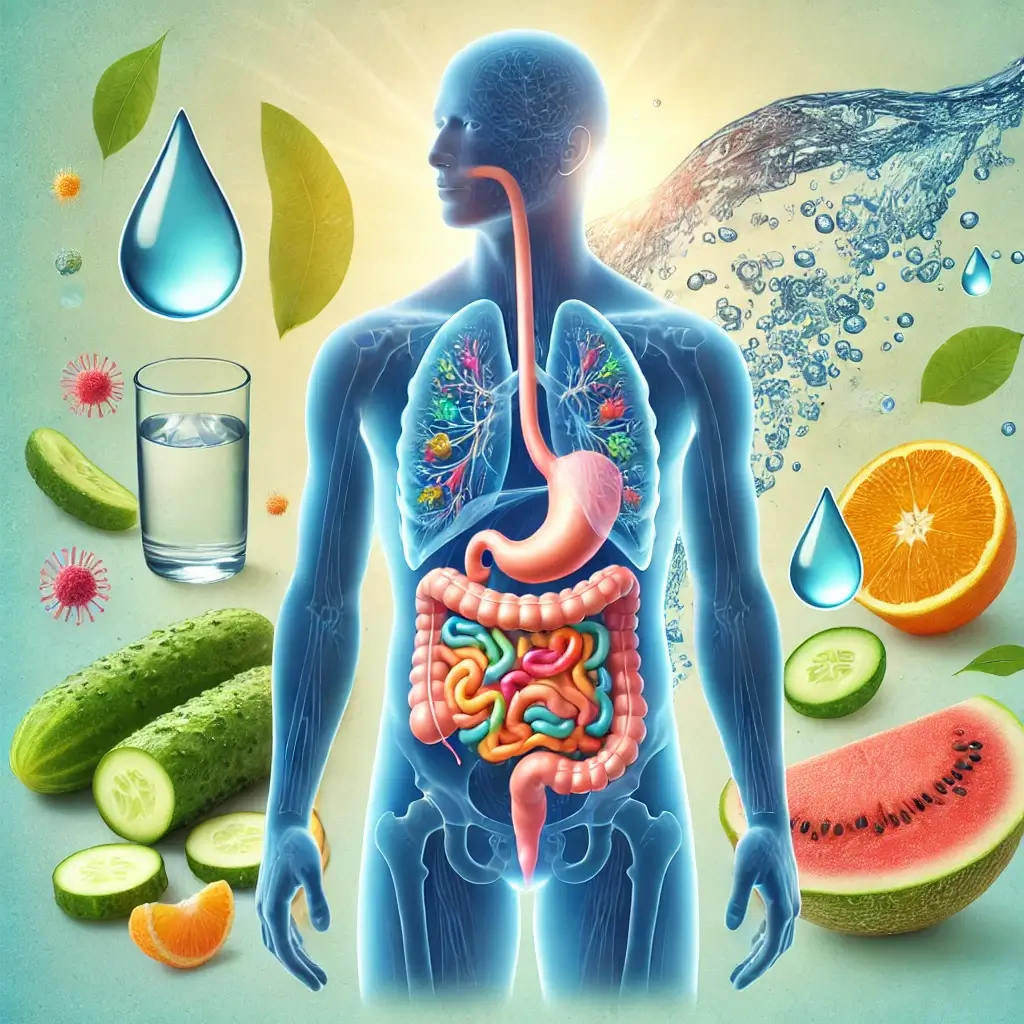The Essential Role of Water in Digestion
Water is the foundation of life, essential for every cellular function, including those that occur within the intricate digestive system. From breaking down food to absorbing nutrients, every step of the digestive process depends on adequate hydration. Unfortunately, the importance of water for gut health is often overshadowed by discussions about diet or exercise, despite its profound influence on digestion.
Impact of Dehydration on Health
Dehydration in its mildest forms can disrupt critical digestive functions, causing symptoms like constipation, acid reflux, and delayed food transit. Moreover, emerging research underscores the role of water in fostering a healthy gut microbiome, the diverse community of bacteria that not only aids digestion but also contributes to immunity and mental health. As modern lifestyles grow more sedentary and dietary patterns shift toward processed, low-fiber foods, maintaining proper hydration has become an increasingly critical yet overlooked element of gut health.
Understanding the Vital Connection
This article explores the vital relationship between hydration and digestion, incorporating recent scientific findings and practical tips to ensure optimal gut functionality. From the challenges dehydration poses to the gut to actionable strategies for hydration, we delve into why water is the elixir of digestive health.
Impact of Dehydration on Digestive System
Dehydration creates a cascade of issues for the gastrointestinal system:
Understanding Constipation and Hydration
When water intake is insufficient, the intestines compensate by pulling water from the stool, leading to dry, hardened feces that are difficult to pass. A 2016 study published in Nutrients demonstrated that adults with higher water intake had significantly reduced risk of constipation, underscoring the link between hydration and bowel regularity (Buhnik et al., 2016).
Effects on Gastric Function
Dehydration can slow gastric emptying process and food transition from the stomach to the small intestine. This slowdown can lead to bloating, discomfort, and inefficient nutrient absorption. Research published in Clinical Gastroenterology and Hepatology in 2019 confirmed that even mild dehydration delayed gastric emptying in healthy individuals, illustrating the immediate impact of inadequate water intake (Li et al., 2019).
Stomach Acid Balance
Water helps dilute stomach acid, preventing it from becoming overly concentrated and irritating the stomach lining. Without adequate hydration, the risk of acid reflux and heartburn increases, causing discomfort and potentially harming the esophagus over time.
Understanding the Gut Microbiome Connection
Beyond its mechanical roles in digestion, water plays a critical part in maintaining the gut microbiome, a dynamic community of microorganisms that influences not just digestion but also immune function and mental well-being.
Bacterial Growth and Balance
Proper hydration creates an environment conducive to beneficial bacterial growth. A 2020 review in Nature Reviews Gastroenterology & Hepatology emphasized the potential for water intake to support microbial balance, although further studies are needed to establish definitive guidelines (Chen et al., 2020).
Nutrient Transport System
Gut bacteria rely on water to extract and transport nutrients from food to the body. Dehydration disrupts nutrient transport process leading to potential deficiencies. A 2018 study in Cellular and Molecular Gastroenterology and Hepatology explored the mechanisms by which hydration facilitates nutrient transport, highlighting its essential role in microbiome health (Li et al., 2018).
Essential Hydration Strategies
To maintain optimal hydration and support gut health, consider these strategies:
Daily Fluid Intake Guidelines
Adults should aim for approximately 2–3 liters of water daily, adjusting for activity levels, diet, and climate.
Natural Hydration Sources
Water-rich foods provide hydration while contributing valuable nutrients like cucumbers, watermelon, and oranges.
Making Water More Appealing
Infusing water with natural flavors like lemon, mint, or cucumber can make it more appealing and encourage consistent intake.
Monitoring Hydration Status
Pay attention to your urine color—pale yellow indicates adequate hydration, while darker shades suggest you need more fluids.
The Path to Digestive Wellness
Hydration is a cornerstone of digestive health, yet it is often underestimated in favor of more complex dietary interventions. By prioritizing water intake, you can enhance nutrient absorption, maintain bowel regularity, and cultivate a thriving gut microbiome. If digestive issues persist despite adequate hydration, consult a healthcare professional to address underlying conditions. With water as your ally, achieving optimal gut health is both accessible and sustainable.
Research Sources
Buhnik, Y., Goldstein, R. M., Ben-Ari, Z., & Goitein, D. (2016). Water intake in healthy adults and constipation. Nutrients, 8(6), 358.
Chen, J., Mao, X., He, B., Holy, X., Wang, R., & Liu, Z. (2020). Water intake and gut microbiota. Nature Reviews Gastroenterology & Hepatology, 17(1), 457-467.
Li, S., Ye, X., Li, Z., Wang, L., Liu, Z., & Chen, L. (2019). Impact of hydration on gastric emptying in healthy adults. Clinical Gastroenterology and Hepatology.
Li, S., Ye, X., Wang, L., Chen, L., & Liu, Z. (2018). Role of hydration in nutrient transport by the gut microbiota. Cellular and Molecular Gastroenterology and Hepatology.
